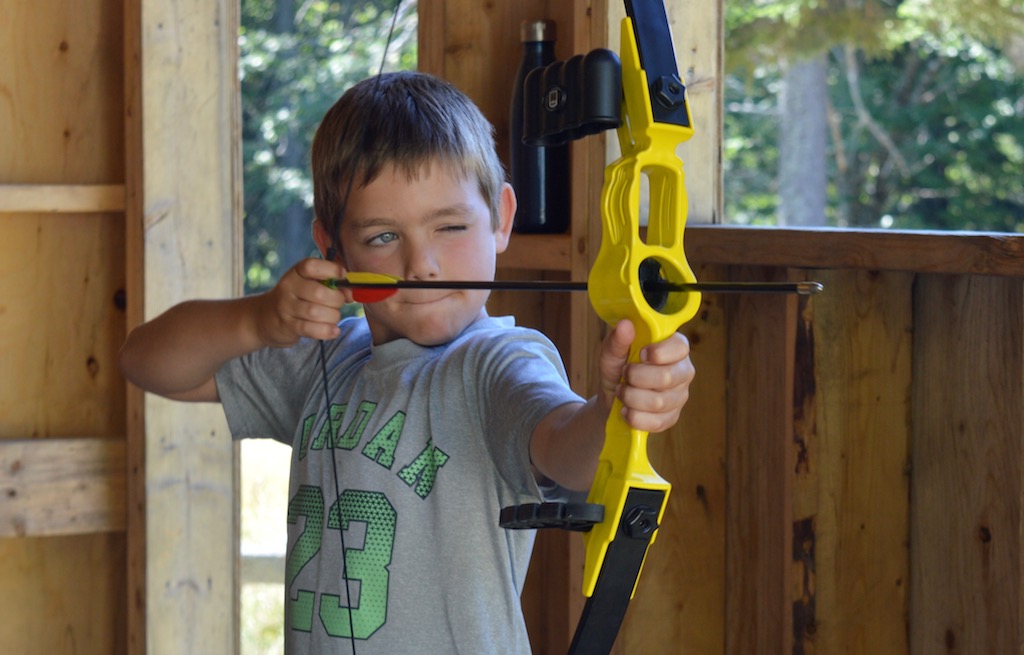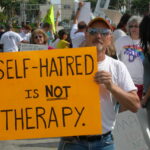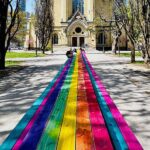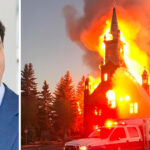LGBT+
Canadian trans activists call cops on church camp for promoting “authentic masculinity”
By Jonathon Van Maren
In April, I had a long discussion with Jojo Ruba about how Canada’s “conversion therapy ban” was being applied since its passage.
Ruba, who has utilized therapy to deal with his own same-sex attraction, has been speaking out on this bill since it was put forward by the Trudeau government and testified against it to a parliamentary committee (you can watch his testimony here).
One of the key objectives of the legislation, he told me, is not simply to prosecute pastors, parents, or counselors who are assisting young people with gender dysphoria or unwanted same-sex attraction. It is to produce a chilling effect across the country that will result in people voluntarily declining to deal with these issues for fear of being charged.
On May 29, the CBC published a perfect example of that “chilling effect” in action under the headline: “Spectre of conversion therapy feared at summer camp aimed at teen boys.” The article is worth breaking down, as it is a microcosmic example of how Canada’s “conversion therapy ban” is perceived by its proponents, and how LGBT activists would like to see it applied in practice. The article begins:
When Vivian Myers-Jones read the description of a summer camp being offered to teenage boys, she was instantly reminded her of her childhood and the expectation that she conform to the traditional ideals of being male.
“This was something I had very silently struggled with for 40 years of my life,” said Myers-Jones, a transgender Hampton woman. So when she heard that Caton’s Island, a church-run summer camp in the St. John River near Saint John, advertised a camp described as “guiding boys to authentic manhood — from confusion to clarity,” she was upset. The language used in the ad worried Myers-Jones so much that she reported it to the RCMP with concerns it had the hallmarks of conversion therapy, which is illegal.
To translate: A biological man who identifies as a woman was triggered by a summer camp for boys because it emphasized “authentic manhood,” a phrase Myers-Jones clearly finds offensive — and so the police were called. The police, for their part, declined to tell the CBC if they were investigating. More:
A post on Caton’s Island’s Facebook page, which has since been taken down, said: “We will endeavor to guide the young men at this camp out of the cultural confusion regarding masculinity to a biblical clarity by using character studies from scripture, history and modern times of real men who stood strong and made a positive difference.”
The post said “authentic masculinity” is “the expected outcome.”
Caton’s Island’s website said the camp, which is open to teenage boys between 14 and 16, will “provide a clear definition of authentic manhood and give young men a clear destination.”
Phrases like “cultural confusion regarding masculinity” and “authentic masculinity” really jumped out at Myers-Jones. The language of the ad could be taken from “the old days,” she said.
“I felt I had to report it at that point,” she said. “It all looked way too familiar to me. … I suffered on account of it … I don’t want to see anyone else suffer, especially the way I did.”
This is all very revealing. Myers-Jones does not appear to believe, based on these comments, that a “clear definition of authentic manhood” exists, and believes that discussion of masculine virtues is from “the old days” — the subtext, of course, is “the bad old days.” These days, Myers-Jones figures that this sort of thing must now be illegal.
The ad also states that: “At the core of our curriculum will be training that will teach valour and virtue — things like courage, personal, family, and social responsibility, delaying gratification by sacrificing now for a greater reward later, and rejecting a life of passivity. Our mission is to help these young men develop core values, foster a responsible mindset and cultivate a biblical character that will serve as their compass through life’s challenges. These lessons will be learned in an outdoor setting with adventure at the core and authentic masculinity as the expected outcome. Good men are necessary and needed.”
Even most common-sense non-Christians, surely, could applaud the goals of a program that focuses on young men building virtue and purpose. But to Myers-Jones, this is so threatening that it warranted a call to the cops. Canon’s Island is operated by the Wesleyan church, who understandably declined to comment — and the ad was promptly deleted from social media. According to the CBC, the New Brunswick Human Rights Commission was also asked if the camp “violates human rights,” but they declined to comment “because the issue is the subject of a criminal complaint.”
READ THE REST OF THIS COLUMN HERE








